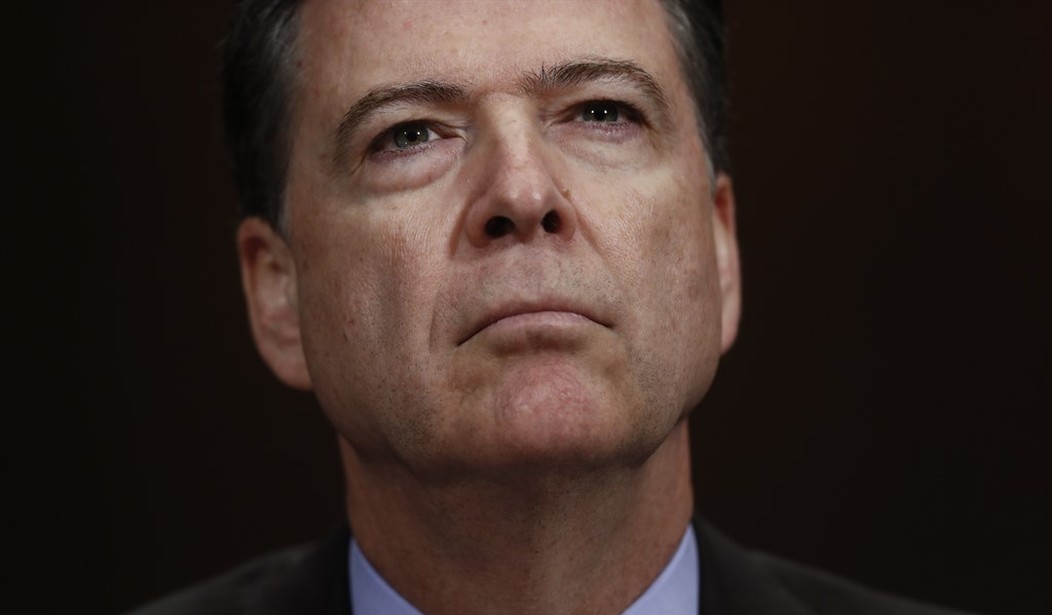Trump owes most of his achievements to his talent for getting attention. Whether the attention was positive or negative was immaterial. His fame became larger and more lucrative either way. In the White House, though, making yourself conspicuous is not always a winning tactic.
By firing the FBI director who was in charge of the investigation of the Trump camp's connections to Russia, the president did not douse the flames licking at his administration; rather, he fed them. He instantly turned a problem into a calamity.
The White House position is that the attorney general and the deputy attorney general wanted to sack James Comey for mishandling his duties, and the president, with an uncharacteristic deference to underlings, granted that request. In his memo outlining the alleged mistakes Comey made in last year's probe of Hillary Clinton's emails, Rod Rosenstein echoed criticisms voiced by many people in Washington.
But assuming that was a reasonable basis to show Comey the door, some obvious questions arise: What was the terrible rush to remove him -- without even informing him? (Comey learned of it from a TV news report while speaking to FBI employees in Los Angeles.)
Why was Attorney General Jeff Sessions -- who had to recuse himself from the Russia investigation after misleading a Senate committee about his contacts with the Russian ambassador -- involved in a decision about the person in charge of it? And why did it take so long to figure out that what Comey did was a fireable offense?
In any event, it's hard to think of any circumstances in which firing the FBI director on such grounds would be taken as legitimate. Suppose Clinton had won and sacked Comey upon taking office. Or suppose Barack Obama had cashiered him shortly after the election. Either development would have ignited outrage over the apparent political motives at work.
Recommended
Trump's motives give every appearance of being worse than political. The FBI investigation could implicate his subordinates in a collusion with an unfriendly foreign government to affect the outcome of an American election. They could also implicate him. Impeachment and prison could follow.
At every stage, the president has conducted himself like someone with a lot to hide. The sensible thing for an innocent person to do when confronted with an inquiry into suspected misconduct is to cooperate fully in bringing the facts to light. The sooner they are known the sooner the innocent will be exonerated.
Full disclosure, however, doesn't help the guilty. They have nothing to gain if the truth is uncovered. Their sole hope lies in denying and concealing the relevant facts and impugning anyone who questions their version.
Trump's insistence that the claims of collusion are "a total hoax," his reluctance to fire Michael Flynn for lying about his conversations with the Russian ambassador, his effort to prevent former acting Attorney General Sally Yates from testifying to Congress about the Flynn matter -- all suggest a grave fear of being found out. Likewise with the unverified claim in his dismissal letter that Comey assured him on three occasions he was "not under investigation."
Trump can claim anything he wants, and he usually does. But this is one of those times when his pattern of invention and deceit is a liability. On a matter of real import, no one but his most devoted disciples takes anything he says on faith.
If Trump imagined that getting rid of the FBI director would help his cause, he was grossly mistaken. Instead of allaying suspicions, he inflamed them. Instead of unifying congressional Republicans behind him, he provoked criticism from some of them. The appointment of a special prosecutor or congressional commission suddenly became far more plausible.
If he imagines he can replace Comey with a staunch loyalist who will shut down the inquiry, he is probably also wrong. Preventing Senate Republican defections in a confirmation vote for the next FBI director will require him to choose someone of unquestioned integrity and independence.
Trump is caught between two stark options. He could furiously try to derail the investigation, which would suggest guilt, or tamely let it go wherever the facts lead, which could prove it.
For an innocent man, it would be an easy choice.

























Join the conversation as a VIP Member